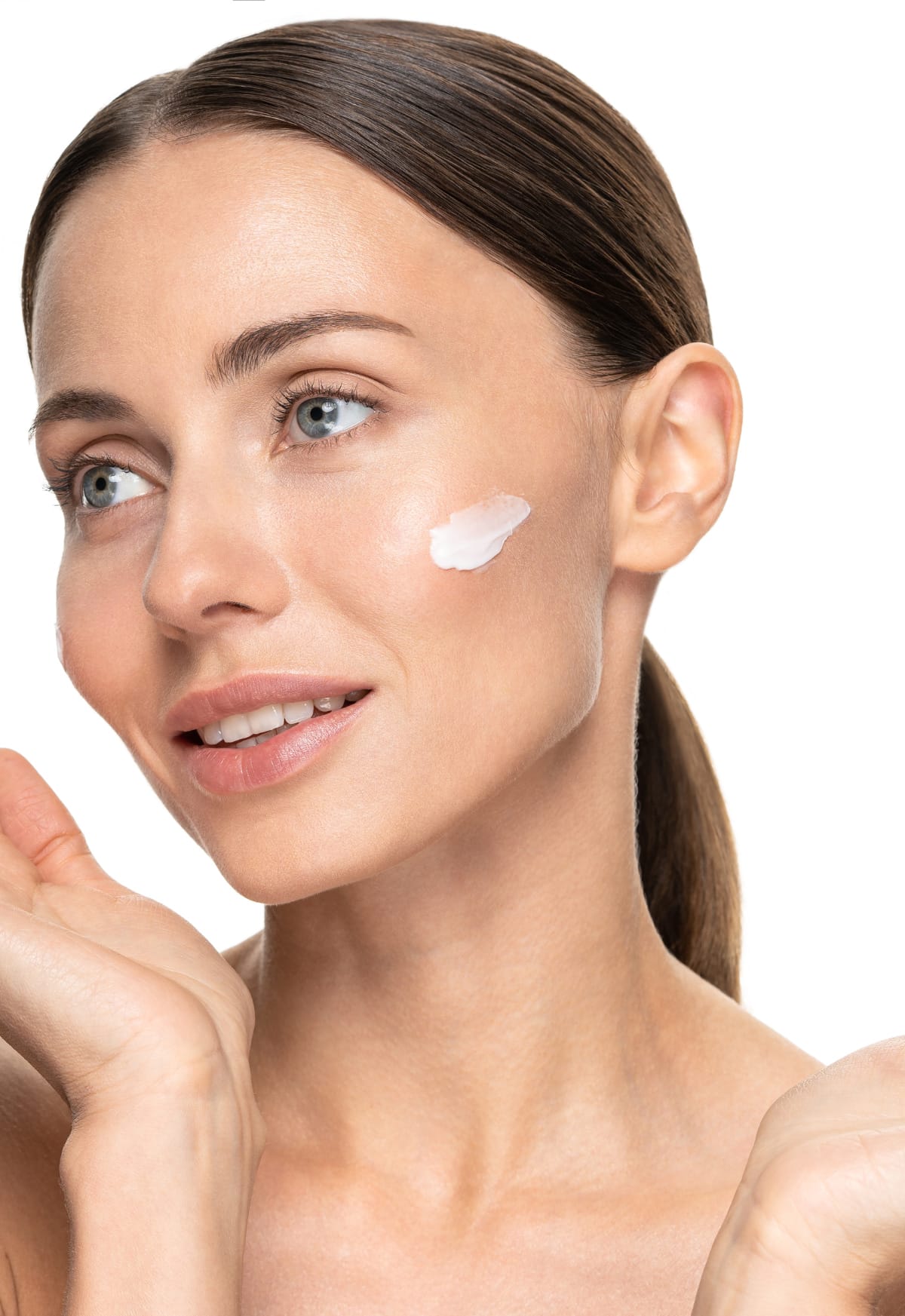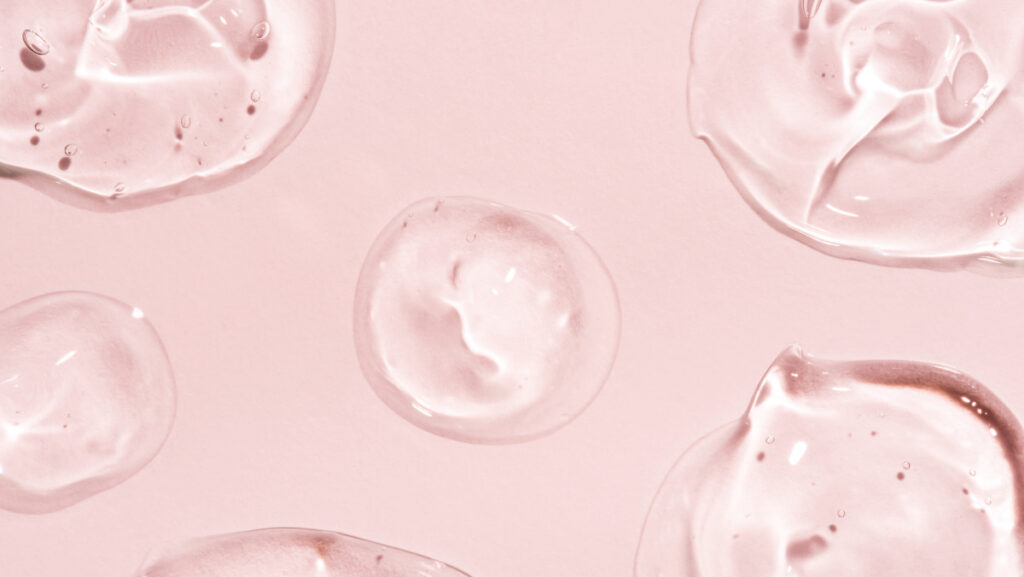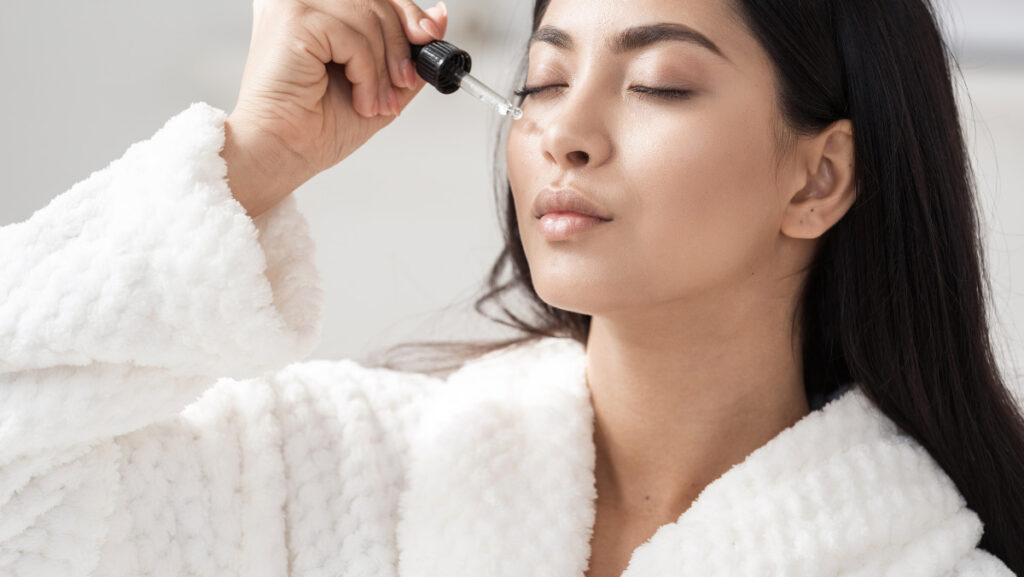
Glycerin might just be the answer you’re searching for moisturized skin! With its incredible hydrating properties and gentle effects on the skin, this natural ingredient is on the label of numerous skincare products.
While this ingredient is literally everywhere, you may not have heard about the incredible benefits of glycerin for skin. Spoiler alert -There is more than its powerful hydrating and moisture-retaining capabilities, which help keep your skin looking youthful and supple.
And that is just the tip of the iceberg. Let’s get this article started! The benefits of glycerin for the skin will surprise you!
Key Takeaways
The 5 Benefits Of Glycerin For The Skin
With exposure to many pollutants and abrasive skincare ingredients, restoring and pampering our complexion is essential. Glycerin is a powerful natural ally to boost skin health. To highlight that point, I present the 5 amazing glycerin benefits for the skin.
Glycerin Maintains Skin Hydration
One of the top benefits of glycerin for the skin is its ability to maintain skin hydration. Glycerin is really good at pulling in and keeping moisture in your skin so it stays nicely hydrated and flexible.
The way its molecules are put together helps make a barrier on your skin that locks in moisture and stops it from drying out. This doesn’t just make your skin feel good right away, it also helps keep it healthy and full of life for the long run.
Glycerin Boosts The Barrier’s Function
Glycerin is important for keeping your skin safe. Your skin has a natural barrier made of fats and cells that protect it from things like pollution, sun, and bad weather.
Glycerin helps strengthen this barrier so your skin can handle everything that might stress it out. By strengthening the barrier, your skin can stay strong and healthy and work well with everything around it to stay lively and full of energy.
Glycerin Protects Against Skin Irritation
Glycerin is really gentle, so it’s great for people with super sensitive skin. It’s not likely to cause allergies, and it’s really good at keeping your skin moist and calm, which helps stop irritation and redness.
When you put it on your skin, glycerin makes a soothing layer that helps you feel better and protects your skin from things that might bother it. It also helps your skin stay healthy and happy without getting stressed out.
Glycerin Accelerates Wound Healing
Glycerin helps wounds heal faster. It’s really good at keeping your skin moist, which helps create the best conditions for your skin to heal itself.
By keeping enough moisture in your skin, glycerin helps your skin fix itself when it’s been hurt. Whether it’s small cuts, scrapes, or other kinds of skin damage, glycerin helps your skin get better faster and go back to being healthy.
Glycerin Helps In Conditions Like Eczema
Glycerin can help with skin conditions like eczema by giving relief to skin that’s feeling really upset. Eczema makes your skin red and itchy, but glycerin is good at keeping your skin moist, which helps with the dryness, itching, and redness of eczema.
Glycerin makes a layer that keeps moisture in and stops your skin from getting more irritated, so it’s like a gentle friend that helps your skin feel better and get back to normal.
What Is Glycerin?
Glycerin, also called glycerol, is a clear, smell-free, and sweet liquid that’s used in lots of different industries like food, medicine, makeup, and personal care products.
One way it’s made is by breaking down vegetable oils or animal fats, which give us glycerol and fatty acids. Glycerin can also be made in a lab from crude oil.
What’s cool is that glycerol isn’t just something we use from the outside—it’s also made naturally in our bodies. It’s part of the oily stuff called sebum that our skin makes to keep it moisturized and protected. So, glycerin is actually part of how our bodies hold onto moisture.

What Does Glycerin Do For The Skin
So, right from the start, we see that glycerin plays a pivotal role in skin health. But is glycerin good for your skin? Yup, that’s because it’s full of skin-loving properties. So, what does glycerin do for the skin?
- Humectant: Glycerin attracts and retains moisture from the air, keeping the skin hydrated.
- Emollient: It forms a protective barrier, preventing water loss and maintaining skin’s softness.
- Soothing: It calms and soothes irritated or red skin, reducing discomfort.
- Antimicrobial: There is some evidence supporting the antimicrobial effect of glycerin, which could function as a soothing balm for skin irritation.
How To Use Glycerin On Your Skin
The benefits of glycerin for the skin are truly remarkable for such a straightforward ingredient. Are you wondering how to employ this impressive skincare ally in your routine? Here is everything you need to know.
The pure form of glycerin is typically found as the clear, odorless, and viscous liquid we have talked about. Pure glycerin can be found in different concentrations, commonly ranging from around 95% to 99.7% pure.
It is still often mixed with a small amount of water, as glycerin has a natural affinity for water and can absorb moisture from the surrounding air.
The question arises – Can you apply pure glycerin on the skin? The answer is no. Glycerin’s humectant properties can potentially draw moisture from deeper layers of the skin if used in extremely dry environments. This could lead to dryness and irritation, which is the opposite of what we want.
That is why you should always dilute pure glycerin, either by mixing it with water or with your favorite water-based moisturizer. Here’s how to dilute glycerin for skin:
Method 1: Glycerin-Water Solution
- Choose a Container: Select a clean and sterilized container to mix the glycerin and water.
- Measure Glycerin: Measure the desired amount of pure glycerin you want to dilute. Start with a small amount, especially if you’re new to using glycerin, to determine the right concentration for your skin.
- Add Water: Add an equal or larger amount of distilled or filtered water to the container. The amount of water you add will depend on the level of dilution you’re aiming for. For example, if you want a 1:1 glycerin-water mixture, add the same amount of water as glycerin.
- Mix Thoroughly: Stir or shake the container well to ensure the glycerin and water are thoroughly mixed.
- Test and Adjust: Perform a patch test on a small area of your skin to ensure that the diluted mixture is suitable for your skin type and doesn’t cause any adverse reactions. If the mixture feels too sticky, you can add more water to further dilute it.
Method 2: Mixing with a Moisturizer
- Select a Moisturizer: Choose a moisturizer that you regularly use and trust. Opt for a moisturizer that’s lightweight and easily absorbed by the skin.
- Dispense Moisturizer: Take the amount of moisturizer you typically use for your face or body.
- Add Glycerin: Add a small amount of pure glycerin to the moisturizer. Start with a drop or two and adjust based on your preference and skin’s reaction.
- Mix Thoroughly: Rub your hands together to thoroughly mix the glycerin with the moisturizer.
To maximize the benefits of glycerin for the skin, you can cook up your own serum by adding other skin-loving ingredients, like rosewater.
For best results, apply this mixture 1-2 times per week, and you will have beautiful glowing skin in no time!
The Best Skincare Products With Glycerin
- Pixi Glow Mud Cleanser: Enriched with glycerin, this purifying cleanser effectively removes impurities and excess oil while maintaining the skin’s moisture balance, leaving it clean, smooth, and radiant.
- The Ordinary Natural Moisturizing Factors: This moisturizer contains glycerin as a key ingredient to replenish and restore the skin’s natural moisture barrier, leaving it soft, supple, and moisturized.
- Kiehl’s Ultra Facial Cream: Infused with glycerin, this cult-favorite moisturizer provides intense hydration and locks in moisture, leaving the skin smooth, comfortable, and protected throughout the day.
- Oskia Renaissance Cleansing Gel: This gel cleanser contains glycerin to effectively remove makeup, impurities, and excess oil while maintaining the skin’s moisture levels, leaving it clean, balanced, and radiant.
- Charlotte Tilbury Magic Cream: This luxurious moisturizer features glycerin to deeply hydrate and nourish the skin, promoting a smooth and glowing appearance while also providing a perfect base for makeup.
- Paula’s Choice Water-Infusing Electrolyte Moisturizer: This lightweight moisturizer, enriched with glycerin, delivers essential hydration to the skin, helping to replenish moisture and improve its overall texture and appearance.
- Elemis Exotic Cream Moisturising Mask: Formulated with glycerin, this luxurious mask provides intense moisture and nourishment, leaving the skin soft, supple, and glowing with radiance.
- La Roche-Posay Redermic R Retinol Eye Cream: This eye cream contains glycerin to hydrate and smooth the delicate eye area, while retinol helps to reduce the appearance of wrinkles and fine lines, leaving the eyes looking refreshed and youthful.
- Cetaphil Moisturizing Cream: Enriched with glycerin, this dermatologist-recommended cream provides long-lasting hydration and helps to soothe dry and sensitive skin, leaving it soft, smooth, and supple.
- Vichy LiftActiv Vitamin C Brightening Skin Corrector: This lightweight serum, infused with glycerin, delivers a potent dose of vitamin C to the skin, helping to brighten the complexion, reduce the appearance of dark spots, and promote a more radiant and even-toned skin tone.

Potential Side Effects On The Skin When Using Glycerin
Glycerin is generally considered safe and well-tolerated for most individuals. However, like any skincare ingredient, some people may experience potential side effects when using products containing glycerin. Here are a few possible side effects:
- Allergic Reactions: Although rare, some individuals may be allergic to glycerin. Allergic reactions can manifest as redness, itching, hives, or swelling of the skin. If you experience any of these symptoms, discontinue use and consult a healthcare professional.
- Skin Irritation: In rare cases, glycerin can cause skin irritation, especially if used in high concentrations or in combination with other (irritating) ingredients. It’s important to patch-test new products before applying them to your entire face or body to check for any adverse reactions.
It’s important to note that side effects can vary from person to person, and individual sensitivities or allergies may play a role. If you have concerns, it’s advisable to consult a dermatologist or healthcare professional for guidance.
Does Glycerin Clog Pores?
We have linked thicker consistencies, similar to glycerin’s, with clogged pores and acne breakouts. But is glycerin pore clogging? To answer that question, I use the help of the system of comedogenic rating. Common ingredients in skincare products are rated on a scale of 0–5. The higher the number is, the higher the chances are that your pores may get clogged.
Generally, values of 2 and below are unlikely to cause clogged pores. So, products containing ingredients with these scores are considered non-comedogenic.
My oily-skinned friends, you can rejoice! Glycerin has a comedogenic rating of 0, this means that glycerin does not clog pores in any way, shape, or form.
Want to check the ingredients list of your favorite product? Or want to see if a product has the potential to clog your pores? Check out our free pore-clogging ingredient checker here!
Related Posts
- 5 Impressive Benefits Of Turmeric For The Skin
- The 6 Benefits Of Papaya For The Skin: Nature’s Secret
- The 5 Awesome Benefits Of Cocoa Butter For The Skin
